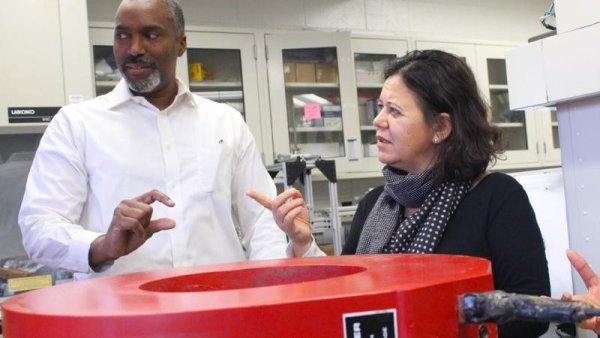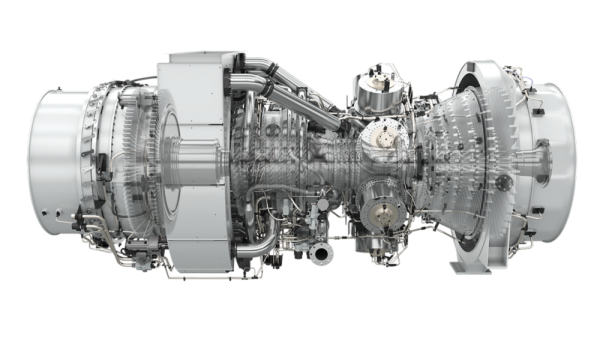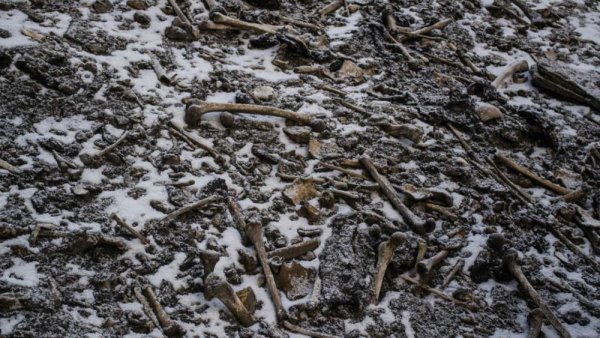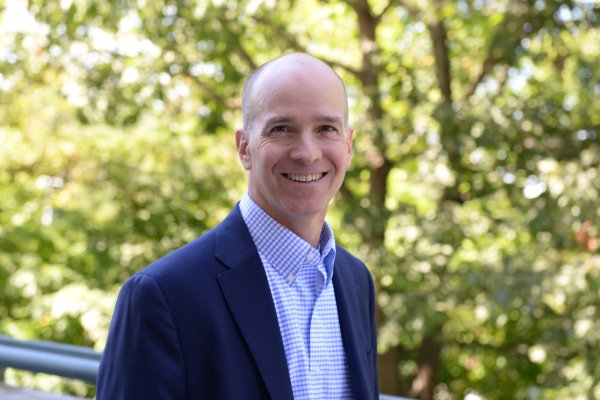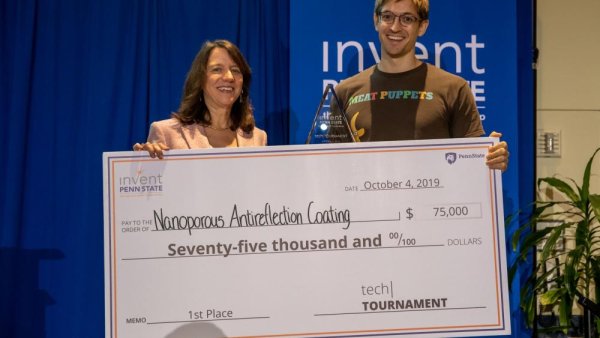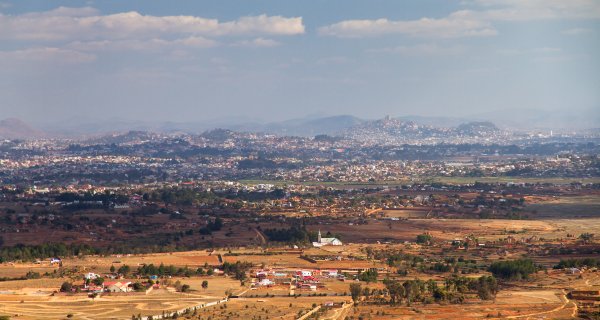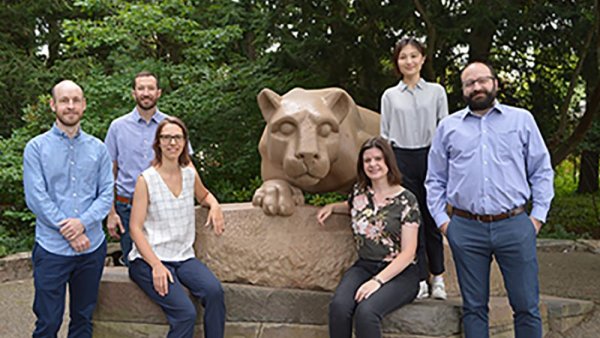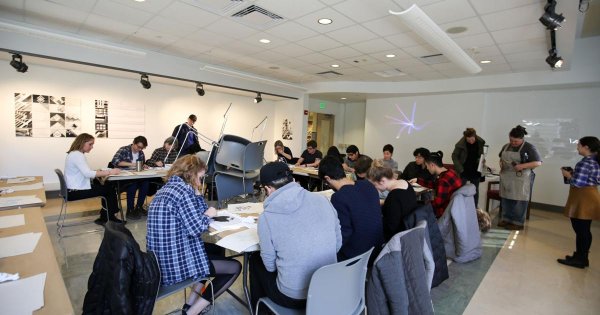Mechanical engineering professors to help develop a universal 3D printer
| psu.edu
Researchers in the Penn State Department of Mechanical Engineering have been awarded a $500,000 grant from the National Science Foundation to develop the science underlying a universal 3D printer.
Penn State awarded $3.3M to develop more efficient gas turbines
| psu.edu
Researchers in the Penn State Department of Mechanical Engineering have been awarded more than a combined $3.3 million from the U.S. Department of Energy to support advancements in the performance and efficiency of combustion turbines and turbine-based power cycles in fossil fuel power generation.
New engineering courses highlight innovation in manufacturing
| psu.edu
The Penn State Harold and Inge Marcus Department of Industrial and Manufacturing Engineering will introduce two new graduate courses on the future of manufacturing and nanotechnology during the spring semester.
The Secrets of Skeleton Lake
| psu.edu
With the help of Penn State’s Radiocarbon Laboratory, international researchers uncovered surprising secrets of a Himalayan lake.
New director to increase Penn State’s impact on today’s water challenges
| news.psu.edu
Andrew Warner has joined the Institutes of Energy and the Environment as the director of a new University-wide initiative designed to elevate Penn State’s prominence as a center of excellence in water.
Nanoporous Antireflection Coatings secures $75,000 in tech tournament
| psu.edu
Representatives from 12 startups took the stage for the 2019 Invent Penn State Venture & IP Conference Tech Tournament to make their pitch for up to $75,000 in cash to help their organizations take the next step to commercialization.
Researchers confirm timeline of human presence on Madagascar
| news.psu.edu
Kristina Douglass and her research team systematically reviewed all of the archaeological radiocarbon dates for Madagascar and confirmed the timeline of human presence on the island.
Recycling rates could rise significantly with this simple tweak
| theconversation.com
Consumers are much more likely to recycle their waste after viewing messages showing the products it might turn into.
New AI app predicts climate change stress for farmers in Africa
| psu.edu
A new artificial intelligence (AI) tool available for free in a smartphone app can predict near-term crop productivity for farmers in Africa and may help them protect their staple crops — such as maize, cassava and beans — in the face of climate warming, according to Penn State researchers. The team will unveil the new tool — which will work with their existing AI assistant, called “PlantVillage Nuru” — to coincide with the United Nations Climate Action Summit held today (Sept. 23) at the U.N. Headquarters in New York City.
The new geographers: Six faculty hires are driving the future of the field
| psu.edu
Six new tenure-line geography faculty started this fall in the Department of Geography. They conduct research on a wide variety of subjects including water, climate change, natural hazards, remote sensing, social networks, data mining, economics, and inequality and diversity.
How the Borland Project Space emphasizes sustainability practices through arts research
| collegian.psu.edu
Room 125 of the Borland Building brings Penn State students, faculty and community members together to witness non-traditional art forms focused on sustainability practices in research.
Building materials researcher joins architectural engineering
| psu.edu
Juan Pablo “JP” Gevaudan, an experimental cement chemist and current Marie Skłodowska-Curie Research Fellow, joined Penn State’s Department of Architectural Engineering on Aug. 16 as an affiliate professor. A member of the department’s structural engineering group, he will become a tenure-track assistant professor on July 1, 2021.

